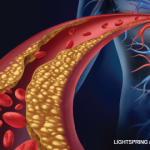He notes that “the stroke data are more interesting than the MI data, because it is usually not broken out this way, with stroke separate from MI. The drugs we thought were safe, like naproxen, begin to signal some adverse events.”
Dr. Abramson also points out that some assessment of overall risk of NSAIDs should account for gastrointestinal (GI) adverse events. “I would like to see a table of rate ratios that included the analogous GI risks,” he says, adding that clinicians grapple with these issues when selecting a pain medication for individual patients.
The absence of information about composite risk is frustrating, agrees Daniel Hal Solomon, MD, associate professor of medicine at Harvard Medical School and member of the pharmacoepidemiology division at Brigham and Women’s Hospital, Boston, and a member of The Rheumatologist’s editorial board. “In their conclusion, [the investigators] mention the importance of weighing CV risk against GI risk, but then give absolutely no information about GI risk,” he says. “This doesn’t propel the doctor–patient conversation in an important way.”
Putting the data in some kind of perspective is important, says John Cush, MD, professor of rheumatology and medicine at Baylor Research Institute in Dallas, Texas. “These are odds ratios of 1.3, 1.6—the worst are around 4.0. But what is event rate? Still incredibly low,” he says. “[Rheumatologists] are familiar with using drugs that have a risk, especially when the benefits outweigh the risk. We carefully select patients to use a particular drug and monitor for adverse effects.”
There is general agreement that pharmacologic pain treatment for musculoskeletal conditions is unsatisfactory. New drugs are needed, and most rheumatologists are increasingly aware of the need for nonpharmacologic interventions, especially weight loss in many patients with knee or hip OA.
“In clinical practice,” says Dr. Jüni, “one uses a stepwise approach and makes compromises.”
Mary Desmond Pinkowish is a medical journalist based in New York.
References
- Trelle S, Reichenbach S, Wandel S, et al. Cardiovascular safety of non-steroidal anti-inflammatory drugs: Network meta-analysis. BMJ. 2011;342: c7086.
- Ray WA. Cardiovascular safety of NSAIDs. BMJ. 2011; 342:c6618.



